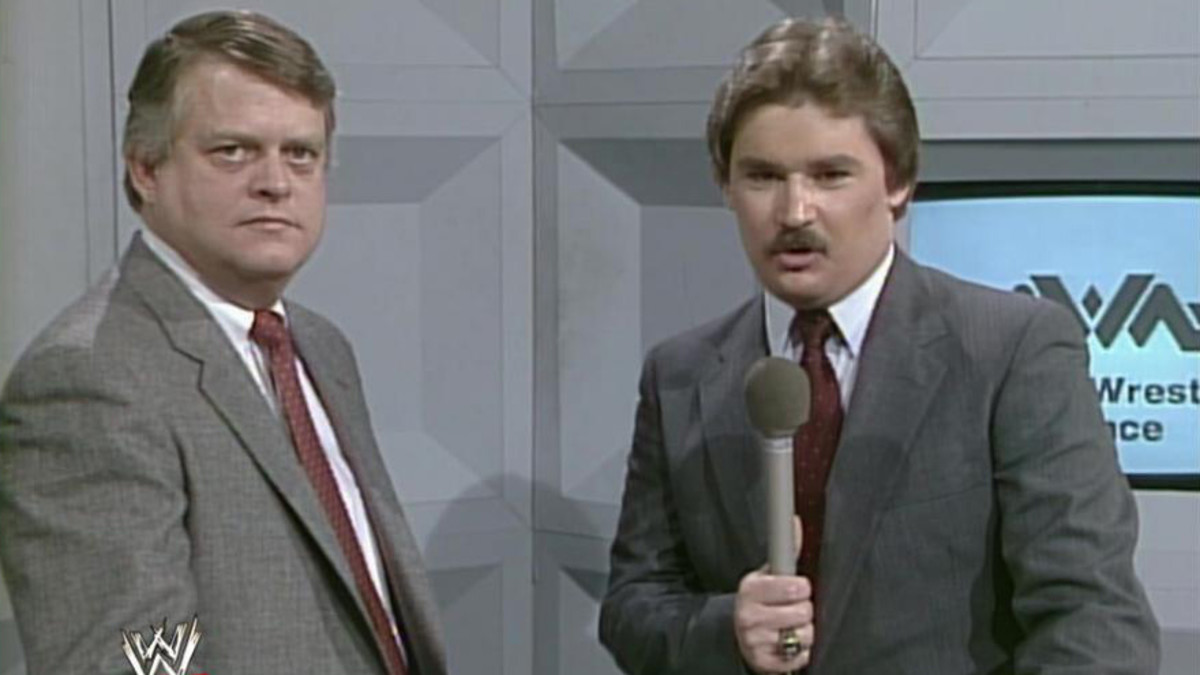Jim Crockett Jr. Reminisces About His Battles With Vince McMahon


Long before AEW, or even WCW, there was Jim Crockett Promotions competing against WWE for supremacy in the world of professional wrestling.
Led by Jim Crockett Jr., who took over the family business after his father passed away in 1973, JCP presented the most complete wrestling product in the 1980s until it was sold to Ted Turner in 1988.
Crockett also served three terms as president of the NWA, the governing body of pro wrestling, while battling Vince McMahon’s World Wrestling Federation in pursuit of becoming wrestling’s signature promotion across the nation.
Crockett and his brother David are part of this weekend’s Starrcast event in Baltimore, Maryland. Run by Conrad Thompson, Starrcast also includes a Great Muta panel, a conversation between Jon Moxley and Jim Ross, as well as interviews with Cody Rhodes and the Young Bucks.
Crockett has been out of wrestling since 1994, but his parting gift to the business was opening a new company—the short-lived World Wrestling Network in 1993. Although the promotion did not succeed, the visionary he had hired, Paul Heyman, went on to set the wrestling world aflame.
“I’m a huge fan of Paul’s work,” said Crockett, now 75. “The stuff he did in Philadelphia was violent but it told a story. He’s smart and good with talent. I was very happy he was appointed as head of the Monday show.”
Highlighting the Crocketts at Starrcast is fitting, especially with All Elite Wrestling running its “Full Gear” pay-per-view in Baltimore on Saturday.
“There are still people on the AEW production crew that worked with me in WCW,” said David Crockett, Jim’s brother and a top executive during his time with Jim Crockett Promotions. “It’s made me think about that adrenaline rush we’d feel before going live on TBS at 6:05.”
Based out of the Mid-Atlantic, Jim Crockett Promotions once represented McMahon’s premiere opponent. While McMahon’s product was built on glitz and glamour, JCP stood for its old-school nature, focused on the wrestlers in the ring, featuring some of the best matches and ring psychology in the world each week on TBS.
McMahon and Crockett, both sons of wrestling promoters, saw the opportunity in the 1980s to expand their family-run, territorial promotions across the nation.
“Sports were growing and we decided that we’d grow, too,” said Crockett. “Wrestling added a lot of production value to it. From the business aspect, I wasn’t that good. But [lead booker] George Scott and I believed in the same thing: a battle of good versus evil.”
Crockett built his roster around a charismatic star that McMahon wanted but, up until that point, had not been able to land: “The Nature Boy” Ric Flair.
“Verne Gagne didn’t want him, we took him, and the rest is history,” said Gagne. “Ric is one of the greatest workers in the history of the business. He had showmanship, pizzazz, and he was a master of crowd psychology. You had to know what you were doing to know what he did.
“Back then, it wasn’t highspot after highspot. It was the wrestlers showing off their wrestling ability. Ric could take bumps with the best of them, but he also knew how to work a match. So did the Rock ‘n’ Roll Express and Magnum T.A. They gave people their money’s worth, and a story was also told.”
Competing against McMahon was an uphill battle, and there were other complicating factors for Crockett.
“We weren’t just competing against Vince,” explained Crockett. “We were competing against Vince and his wife Linda. She is brilliant, and she helped run the business. But we were competitors. We did things, they’d copy it. They’d do things, we’d copy it. Vince tried to steal talent, and he stole some good talent from us.”
JCP appeared to be a legitimate contender to become king during wrestling’s national expansion in the 1980s. It operated as the largest member of the National Wrestling Alliance, where Crockett sat as a three-term president.
“Three terms as NWA President, that was a babysitting job,” said Crockett. “Back in those days, no one wanted to lose [their match]. Every promoter was trying to screw the other one, and that was spread out all over the country.”
McMahon did not take his competition lightly. In addition to acquiring talent from Crockett’s roster, the WWF and JCP competed directly against one another—something of a precursor to the “Monday Night Wars”—on Thanksgiving night in 1987.
Crockett ran his Starrcade pay-per-view, and McMahon responded by threatening pay-per-view distributors that those who aired Starrcade would lose the right to run WrestleMania IV the following March. McMahon then went a step further, airing his own pay-per-view, the first-ever Survivor Series, against Starrcade ’87, which included a five-on-five match that featured Hulk Hogan in the ring again against Andre The Giant.
“In ’87, we had no qualms about moving forward and competing with Vince,” said Crockett. “But Vince was paying people, we tried to keep up, and that’s one of the areas where we got caught.”
McMahon continued to hinder Crockett’s chance at building an audience on pay-per-view. JCP’s next pay-per-view, Bunkhouse Stampede, aired in January of 1988. McMahon did not air his own pay-per-view that night, choosing instead to run a free show—the first-ever Royal Rumble—on television.
McMahon considerably hurt the Crockett profit margin, though there was some, albeit brief, revenge.
“On Vince’s WrestleMania IV pay-per-view, we went on TBS and had a Clash of the Champions special,” said Crockett, referring to a phenomenal show that featured Flair and Sting wrestling to a draw for the NWA title. “There were no commercials during the wrestling, and we got great TV ratings.”
The celebration for the Crocketts was short-lived.
“The next day, I get a call from Ted Turner,” said Crockett, referring to the owner of TBS–and the man who later bought the company from Crockett and rebranded it as WCW. “Ted saw me in his office and told me to never do that again. His partners in that world were the cable companies, and by airing that show against Vince, it meant money out of the pockets from the cable companies. So we never did that again.”
By November of 1988, on the brink of bankruptcy, Crockett sold the promotion—which had operated under his family name since 1931—to Turner.
“We had built a television show and advertising flow, but we didn’t manage cash flow and we couldn’t factor our time sales,” said Crockett. “That’s why we started morphing toward Turner.”
Crockett was asked about the possibility of selling JCP to McMahon, but quickly noted that Turner was adamantly against it.
“We originally would have sold to Vince, but Turner said no,” said Crockett. “Back in those days, Ted Turner was the Hoover vacuum cleaner. Anything that could work on his shows, he wanted to own it.”
More than three decades after the sale to Turner, the Crockett name and legacy still lives and breathes in pro wrestling.
“We presented pro wrestling differently than McMahon,” said Crockett. “It was believable violence. I’m not disappointed that I left wrestling, but it makes you feel good when people remember. I can’t tell you how much that means.”
Justin Barrasso can be reached at JBarrasso@gmail.com. Follow him on Twitter @JustinBarrasso.
